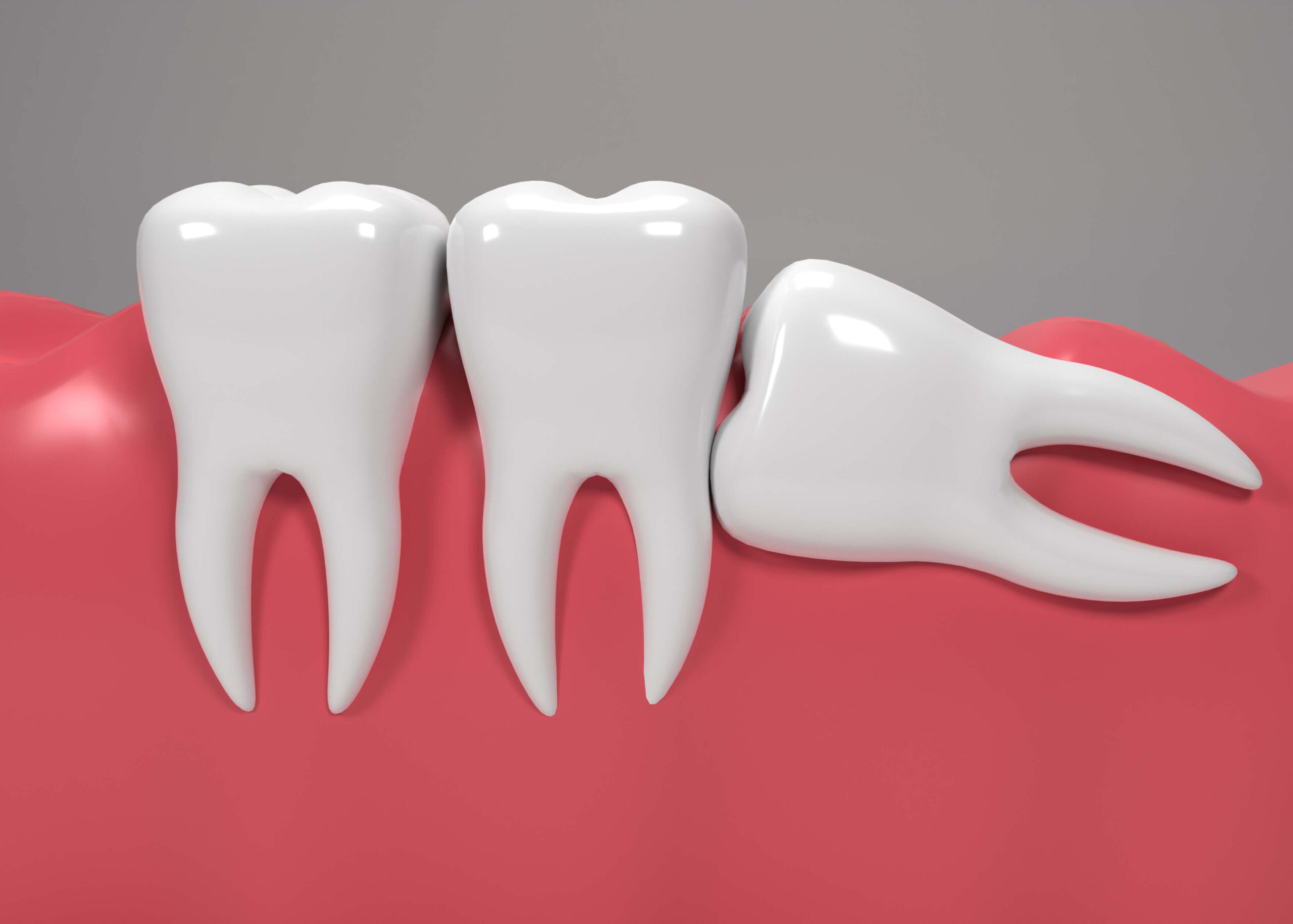Everything You Need to Know About Wisdom Tooth Pain and Remedies

A wisdom tooth might sound like a sign of maturity, but when it begins to show up,it’s not a good thing at all. From broken wisdom tooth pain to sideways wisdom tooth complications, understanding these slow starters is key to managing discomfort and knowing when to consult a dentist and get a treatment.
What Is a Wisdom Tooth?
Wisdom teeth are the third set of molars that usually appear between the ages of 17 and 25. While some people have no problems at all, many people experience pain, crowding, or complications due to improper growth or alignment like a horizontal wisdom tooth.
Common Issues with Wisdom Teeth
Here are some main common problems that can issues arise with wisdom tooth:
1. Impacted Wisdom Tooth
When a tooth can’t fully emerge or remains blocked in the jawbone or gum.
2. Sideways or Horizontal Growth
A sideways wisdom tooth or horizontal wisdom tooth can press against neighboring teeth, causing crowding or pain.
3. Decay or Damage
Hard-to-reach wisdom teeth are more likely to cavities or even break.
A broken wisdom tooth can cause sharp pain, swelling, and infection if not treated.
Wisdom Tooth Pain: What It Feels Like
Pain from a wisdom tooth can be dull, throbbing, or sharp. It may also lead to:
Swelling of the gums or jaw
Headaches or earaches
Difficulty to chewing or opening your mouth
Bad breath or unpleasant taste
How to Cure Wisdom Tooth Pain at Home
While dental treatment is commonly needed, there are some home remedies for wisdom tooth paim that helps to get a temporary relief:
Saltwater rinse: It helps to reduce inflammation and clean the area
Cold compress: Numbs pain and reduces swelling
Clove oil: Natural pain killer that relieves discomfort
Common pain relievers: Like ibuprofen or paracetamol
Wisdom Tooth Pain Treatment Options
If home remedy isn’t enough, it’s time to consult a dentist and get wisdom tooth pain treatment from the best dental clinic. Options may include:
Filling: In some cases, a wisdom tooth filling is possible if the tooth is well-positioned and the cavity is small.
Antibiotics: For infected or swollen gums
Extraction: Most common solution for highly affected or painful teeth
Dos and Don’ts After Wisdom Tooth Extraction
Proper aftercare can make a big difference in your wisdom tooth recovery. Here are the dos and don’ts after wisdom tooth extraction:
DO:
Bite gently on gauze (cotton pad or band aid) to stop bleeding
Using ice packs helps to reduce swelling
Eat soft, cold foods like yogurt or mashed potatoes
Take prescribed medications properly
DON’T:
Don’t use straw for drinking (it can cause dry socket)
Avoid smoking or drinking alcohol for at least 48 hours
Avoid eating hard, crunchy, or spicy foods
Don’t rinse forcefully for the first 24 hours
How to Reduce Wisdom Tooth Pain Naturally
Even if extraction isn’t needed immediately, you can check how to reduce wisdom tooth pain naturally:
Maintain good oral hygiene
Avoid chewing on the painful side
Rinse with hydrogen peroxide (diluted)
Drink plenty of water (Hydration is the key)
Wisdom Tooth Filling: Is It Possible?
A wisdom tooth filling is rare but not impossible. If your wisdom tooth is properly aligned and easy to clean, your dentist may suggest a filling over removal. However, due to their position, many dentists recommend extraction to avoid future problems.
When Should You See a Dentist?
Visit your dentist if you notice:
Continuous pain lasting more than a few days
Swelling or inflection fluid near the tooth
Feeling difficulty while opening your jaw
A broken wisdom tooth or exposed nerve
Early treatment helps to prevent more complications and make extraction easier if needed.
Conclusion
Whether you’re dealing with a horizontal wisdom tooth, a broken wisdom tooth, or wondering about home remedies for wisdom tooth pain, the key is to address issues early. From knowing how to cure wisdom tooth pain to dos and don’ts after the wisdom tooth extraction, being informed about everything is your best thing for staying pain-free and healthy.
Faqs
Generally, most wear braces for 12 to 24 months, but it all depends on how complicated your case is, how old you are, and which type of braces or aligners you use.
You might have some mild soreness or pressure, particularly following adjustments, but it should stop after a couple of days. You can ease it with some over-the-counter pain medication if necessary.
Yes! Braces can be used by many adults to enhance their smile. Treatment takes a little longer than in teenagers, but results are equally good.
Stay away from sticky, chewy, and hard foods such as gum, popcorn, toffees, and nuts. They can ruin the brackets and wires, resulting in treatment delays.
Yes, you should definitely wear a retainer following your braces. It will help maintain your teeth in their new place and halt shifting.
Yes, but you should wear a mouthguard for contact sports. With practice, playing wind instruments also becomes comfortable.
You can obtain your braces from Liberte Dental Clinic which has branches in Malappuram, Calicut, or Kasaragod. We provide customized orthodontic treatment, including braces, aligners, and other cosmetics with reasonable prices.
Quick Links
Branches
Opp. Shanthigram Road,
Thurakkal Bapputty Bypass Road,
Manjeri, Malappuram
Phone: +91 7994026661
1st Floor, Millennial Square Building,
Opposite to UL cyber park,
Nellikode, Kozhikode
Phone: +91 7994178524
1st Floor, City Mall Building,
Near New Bus stand,
Kasaragod, Kerala
Phone: +91 73564 25069


